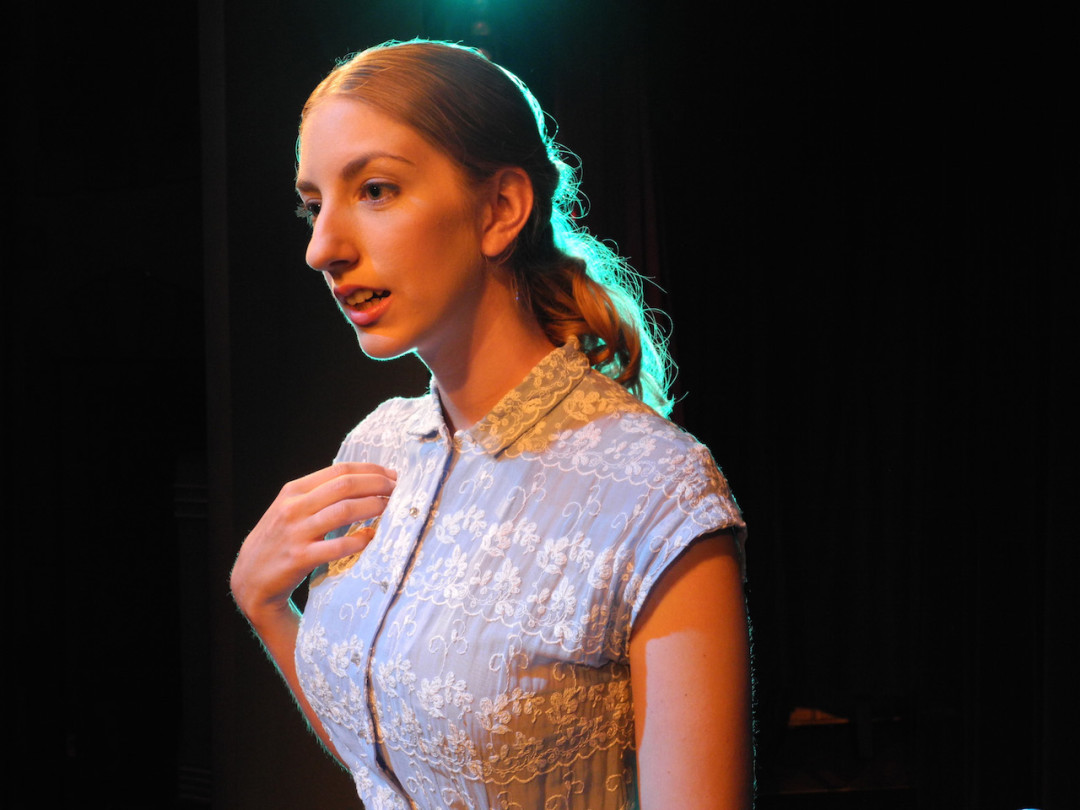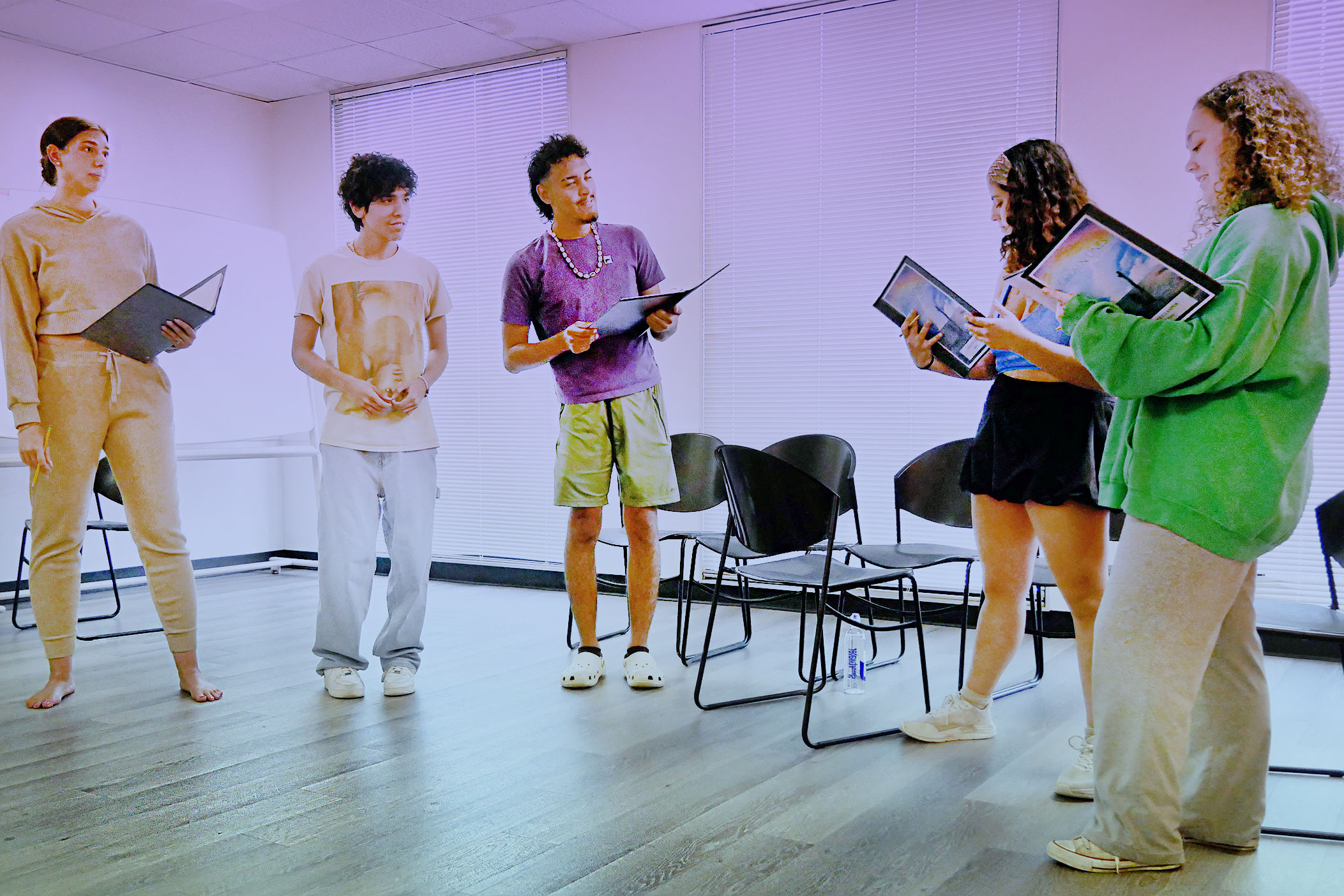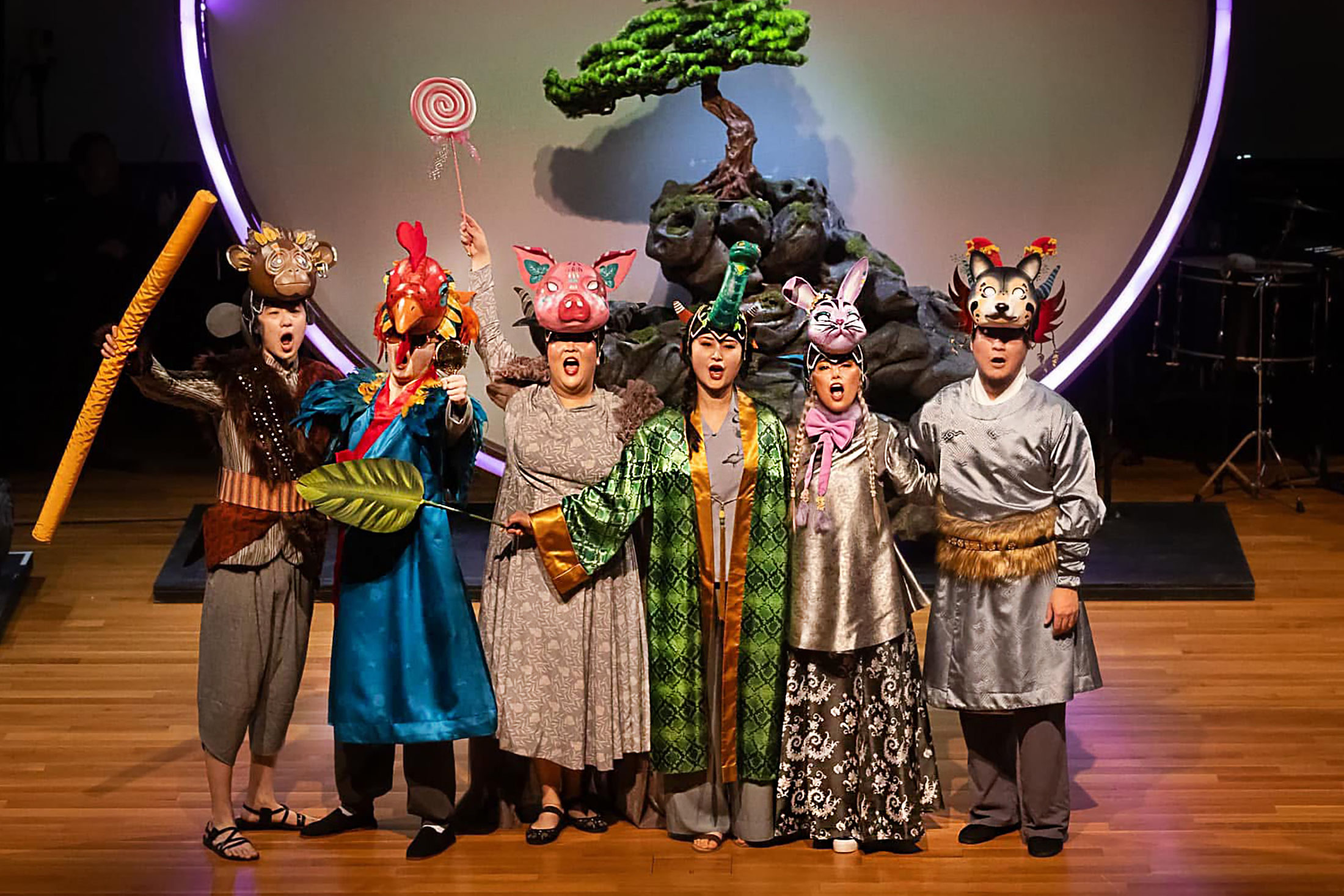With Strong and Active Faith

Actress Ingrid Garner stars in the one-woman play, Eleanor's Story
Image: Theater LaB Houston
In the one-woman play, Eleanor’s Story: An American Girl in Hitler’s Germany, Los Angeles actress Ingrid Garner uses the stories of more than a dozen characters to dive into the painful and personal pasts of those affected by the Nazi regime in World War II Europe. Using various sound effects, voice overs and projections, Garner chronicles the maturation of Eleanor, a young American girl of German descent living in Berlin between 1939 and 1946, the entirety of World War II and a year into the Soviet occupation. During the 70-minute one-act play, Garner portrays characters who range in age from 9 to 40 including her great-uncle, great-grandmother, great-grandfather and the title character, Eleanor Ramrath Garner, her grandmother.
Eleanor came of age in a Berlin under Hitler’s reign and endured nearly a year of the Soviet occupation and the turmoil it wrought. Her family survived phosphorous and carpet bombs; air raids, sometimes up to 17 times per night; rationing; starvation; and the political intimidation symptomatic of Nazi Germany. Decades later, says Garner, Eleanor remembers the way her teeth would chatter as the tiny hairs on her arms and legs stood to attention.
And the Battle of Berlin, which won the war and ended Germany’s fascist dictatorship, brought little relief. The city crumbled along with The Third Reich. “My grandmother was witness to many rapes and awful brutalities. If Hitler didn’t treat his own people very well, the [Soviets] treated them much worse,” notes Ingrid. Looting was rampant. Overcrowding led to disease. “After the city fell, there was no leadership. There was no one policing these things. It was mayhem.”
Garner finds that transferring her grandmother’s account from book to play has brought on a significant amount of catharsis. “A visual, emotional portrayal is more disturbing,” she notes.
Even so, Garner assures that thin shards of light peek through the bleakness of the tale. “There are universal, often funny moments about just growing up,” she notes. Eleanor learns where babies come from right after the birth of her younger brother and, at 15, discovers menstruation is a source of annoyance not pride. These bits of normalcy shine even brighter when surrounded by the darkness of the period.
Garner calls Eleanor’s Story her Sistine Chapel. “I am very proud of the piece. I didn’t know I could pull something like this out of me and have something really powerful that people all over the world have responded very positively to.”
Nov 11–14 at 8; Nov 15 at 3. $25-45. Theater LaB Houston, MATCH, 3400 Main St. 713-868-7516. thelabhou.org/




